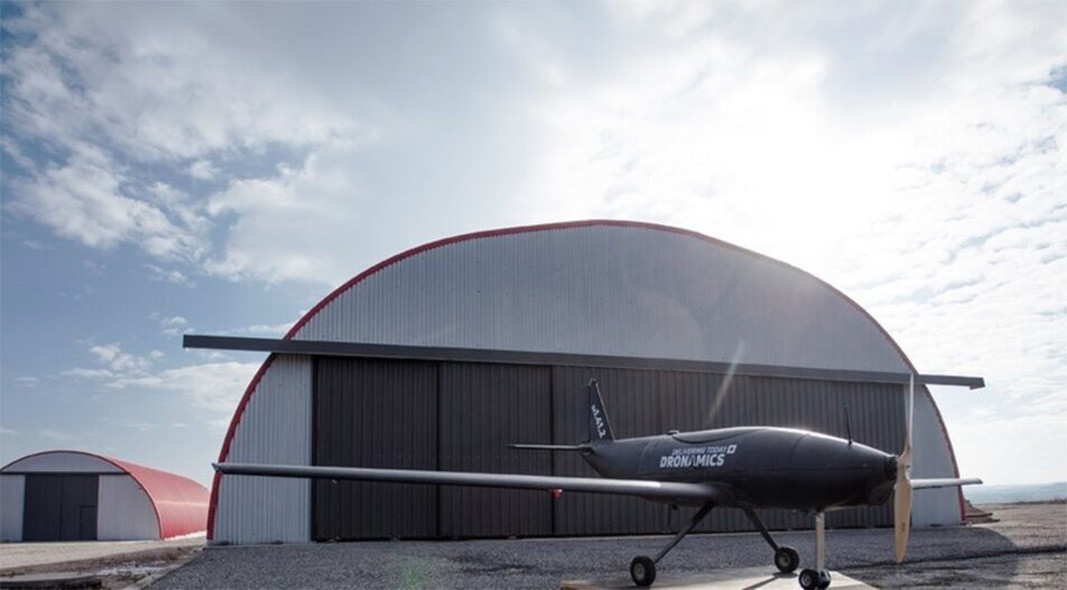The Black Swan is a revolutionary unmanned aerial vehicle (UAV) that can land on short and unpaved runways and deliver goods to remote and hard-to-reach corners of the planet at 80% lower cost than current aircraft. The Bulgarian innovation was presented at the end of 2021 at the Sofia Airport personally by its creators - brothers Svilen Rangelov and Konstantin Rangelov. Meanwhile, the innovation has attracted the attention of two of the largest cargo companies in the world. Black Swan's first commercial flights are expected to start in mid-2022 from the airports of Liege (Belgium) and Brescia (Italy).

"The flying delivery van” is the way Svilen Rangelov describes jokingly and with much affection the drone, which is the result of 7 years of efforts of the technological start-up company founded by him and his brother. Here is what the creator told us about the aircraft:
"A flying delivery van is a good description of its use. Otherwise, it looks similar to an ordinary airplane. However, there is no cockpit and its shape is much more optimized. It has an 8-meter-long fuselage and a propeller engine with 140 hp, mounted in front of the fuselage. It has two wings with a total span of 16 meters, as well as a standard tail configuration. Visually, it looks very conventional.”

"Black Swan" is a metaphor used for unpredictable events with great social or economic impact. This is exactly the effect that the Bulgarian plane is expected to cause in modern cargo transportation industry. "Innovations are usually very expensive and here we are making a breakthrough with an innovation that is cheap and affordable for mass production," Svilen says. The aircraft can carry 350 kg of cargo and fly distances of up to 2,500 kilometers. "For example, we can fly from Sofia to Varna for 2 hours at a price of about 1 euro per kilogram," Svilen adds. He is an economist who studied at the American College of Sofia, then graduated in the United States. His brother Konstantin is an aerospace engineer. The idea for the innovative plane was born 7 years ago in a conversation between the two brothers.

"My brother was living in the Netherlands and he was working for an aeronautical engineering company. One day he told me that he missed Bulgarian cheese and asked me when I would visit him again in order to bring him some. I was slightly annoyed and replied: ‘I will not be coming soon. You're an engineer, build a drone and I'll send cheese to you!’”

Today, 7 years later, their development is about to completely change our perception of freight services. Recently, one of the world leaders in the field of logistics announced its plans to purchase 4,000 units of the cargo drone with the idea of achieving its goals for carbon neutrality by 2050. The reason is that the Bulgarian "Black Swan" produces less harmful emissions in comparison to usual methods of delivery, while the price remains the same! Meanwhile, the Rangelov brothers hope that billions of people around the world will reap the benefits of their innovation in the near future.

Author: Veneta Nikolova
English: Alexander Markov
Photos: private libraryThis year, Dilmana , a folklore dance group formed by our compatriots in Copenhagen, will visit Bulgaria for the first time to take part in the Na Armane s Tupane festival of traditional dances. The group announced this on their Facebook page. The..
The Consulate General of Bulgaria in New York is opening its doors to interns and volunteers who want to gain a realistic idea of the diplomatic profession and to join the cultural life of the Bulgarian community overseas. In order to become an..
A delightful town, Pazardzhik, lies just 37 kms. from Bulgaria’s second biggest city, Plovdiv, and about 100 kms. to the Southeast of the country’s capital Sofia. The favourable geographical location of this ancient town is the reason why important..

+359 2 9336 661
